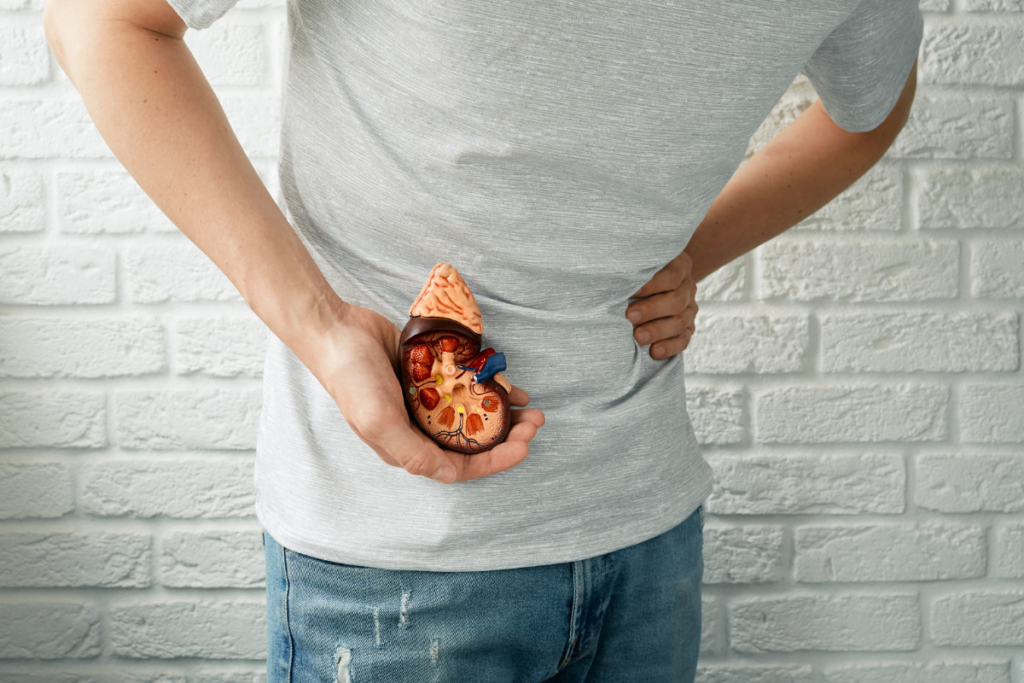Kidney stones are solid buildup of minerals and salts that form inside the kidneys. If treatment is not received, they may cause chronic kidney damage and be extremely painful. It is essential to comprehend kidney stone sources, symptoms, and available treatments in order to avoid recurrence and protect your kidneys. This article will cover the key factors associated with kidney stones, their symptoms, and the best strategies for prevention and treatment.
What Are Kidney Stones?
Hard, crystalline mineral deposits that develop in the kidneys are called kidney stones. They range in size from small grains to big stones that can block the urinary tract. Although struvite and uric acid stones are also possible, calcium oxalate is the most prevalent kidney stone. These stones can be extremely painful, especially if they pass through the urinary tract.
Causes and Risk Factors:
The exact cause of kidney stones varies, but common contributing factors include:
● Dehydration: Not drinking enough fluids leads to concentrated urine, increasing the risk of stone formation.
● Diet: High salt intake, high oxalate foods (like spinach and chocolate), or too much animal protein can contribute to stone formation.
● Medical Conditions: Kidney stones are more common in people with diabetes, obesity, gout, and hyperparathyroidism.
● Family History: Kidney stones are possibly more likely to occur if there is a genetic tendency.
Symptoms of Kidney Stones:
Based on their size and location, kidney stones can cause
● extreme lower abdominal, side, or back pain.
● Painful urination or blood in the urine (hematuria).
● Frequent urination or the urge to urinate.
● Nausea or vomiting.
Diagnosis and Treatment:
Kidney stones are typically diagnosed using:
● CT scans or ultrasounds to detect the size and location of the stones.
● Urine tests to analyse the composition of the stones.
Treatment options include:
● Pain relief: Over-the-counter pain medications or stronger prescriptions.
● Hydration: Drinking plenty of water to help pass small stones.
● Medications: Alpha blockers may help relax the muscles in the urinary tract.
● Surgery: If the stones are too large, options like lithotripsy (shock wave treatment) or surgical removal may be required.
Prevention Tips:
To prevent kidney stones:
● Drink plenty of water to stay hydrated.
● Cut back on salt and animal protein in your diet.
● Avoid foods high in oxalates like spinach, nuts, and chocolate if you’re prone to calcium oxalate stones.
● Eat extra fruits and vegetables to increase your intake of potassium.
FAQs
How can I avoid getting kidney stones again?
Stay hydrated, avoid high-sodium foods, and manage underlying conditions like diabetes or high blood pressure.
What foods should I avoid if I have kidney stones?
Eat less salt and fewer foods high in oxalates, such as chocolate, spinach, and nuts.
Are kidney stones dangerous?
Large kidney stones can block the urinary tract and result in serious problems if treatment is delayed; however, the majority of kidney stones clear on their own.
Disclaimer:
This information is for educational purposes and should not replace professional medical advice. Always consult your healthcare provider for personalised recommendations.
How HealthPil Can Help:
HealthPil connects you with nephrologists and urologists who can help manage kidney stones effectively and prevent future occurrences. Schedule a consultation today!

